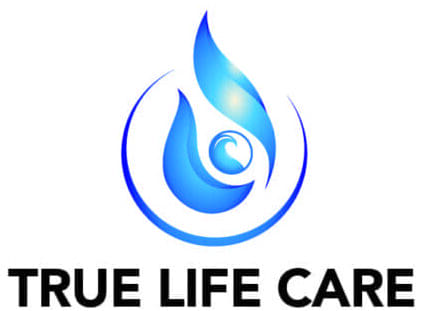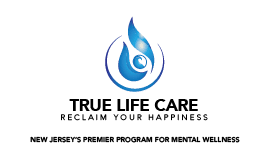Partial Hospitalization Program vs IOP: Which One Is Right For You?
If you are struggling with mental health or addiction challenges in New Jersey, and are deciding between partial hospitalization program vs IOP, read on to learn more.

What Is a Partial Hospitalization Program vs IOP?
A partial hospitalization program (PHP) is a structured mental health treatment program. It is for individuals with substance use disorders or severe mental health conditions.
An intensive outpatient program (IOP) can help treat the same disorders, but it often requires less time spent at the facility. Figuring out whether a partial hospitalization program vs IOP is important in getting the care you need.
What to Know About These Programs
Partial Hospitalization Program (PHP)
Intensive Outpatient Program (IOP)
An IOP is a treatment designed to help individuals integrate into daily life. It involves less intensive support when compared to a partial hospitalization program.
Overview of Partial Hospitalization Program vs IOP
How Is an IOP Structured?
Medical practitioners recommend an IOP for individuals with less severe mental health or substance use symptoms. It is a treatment program for individuals that do not need hospitalization care or around-the-clock services.
IOP involves attending a structured therapy session. The session may last for two to three hours daily and two to four days weekly.
The IOP program may last for eight to twelve weeks, depending on the individual’s needs. The individual will receive comprehensive health care from professionals during the partial hospitalization program vs IOP.
Partial Hospitalization Program vs IOP: What Treatment Is Best for Individuals Struggling With Addiction?
The best treatment program for individuals with addiction depends on the individual’s needs. A partial hospitalization program offers individuals a high level of support. It is also a full-time commitment program.
An intensive outpatient program is less intensive when compared to a partial hospitalization program.
The intensity of an IOP may vary depending on the individual’s circumstances and needs. Deciding on the treatment program that is best for an individual requires an assessment by a medical professional.
How Does an IOP Work?
Some treatment services in a partial hospitalization program include individual and group therapy. These services enable the individual to build the knowledge and skills they need during recovery.
It helps them handle addiction in a productive and healthy way. A partial hospitalization program vs IOP both offer a recovery environment for the individuals to develop healthy coping skills.
What Levels of Care Are Offered?
An intensive outpatient program does not offer the same level of care as PHP. It is important to know that an IOP may not include medication-assisted treatment, but it depends on the treatment center.
In 2015, a study showed that most diagnoses within IOP were substance use related. If you require MAT, make sure you research a program that has one.1
Factors to Consider When Determining the Appropriate Level of Treatment
Cost and Duration of the Treatment Program
There is health insurance that can help cover the cost of the treatment program. It is advisable to research and ensure the individual’s insurance will cover the necessary costs before beginning a treatment program.
Severity of Substance Use Disorder
It is advisable to consider the severity of your or your loved one’s substance use disorder when determining the appropriate level of treatment.
Individuals with more severe levels of substance use symptoms tend to need an intense form of treatment.2
Treatment Approach Available at the Facility
Research the treatment approach offered by the potential treatment facility. Although some facilities, such as True Life Care Mental Health, offer a combination of traditional and holistic interventions, some don’t.
Knowing the treatment options offered at the facility before starting a program is vital.
How Can a Partial Hospitalization Program vs IOP Treat Varying Mental Health Disorders?
A partial hospitalization program vs IOP are both designed to provide treatment for individuals dealing with mental health disorders.
Depression
A partial hospitalization program vs IOP can both be effective in treating depression by providing individuals with the tools and support they need to manage their symptoms.
Both treatment options offer evidence-based therapies, such as cognitive-behavioral therapy (CBT), which can help individuals identify negative thought patterns and replace them with more positive ones.
Peer Guidance and Support for Depression
Anxiety
Therapy Utilized in PHP and IOP for Anxiety Treatment
Exposure therapy is a technique where individuals gradually expose themselves to the things they fear to help them overcome their anxiety in a safe and controlled environment.
A PHP or IOP can help improve an individual’s quality of life by providing effective treatment options to address their anxiety.
Substance Use Disorder
A partial hospitalization program vs IOP can help individuals struggling with substance use disorder (SUD) to overcome their addiction.
Both PHP and IOP utilize evidence-based therapies such as cognitive-behavioral therapy and motivational interviewing.
MAT Opportunities for SUD Recovery
PHP and IOP can also provide individuals with medication-assisted treatment (MAT), which uses medication to reduce the symptoms of withdrawal and cravings when appropriate to do so. This is a very common treatment for those with substance use disorder.
Trauma or PTSD
Trauma-focused treatment in a partial hospitalization program vs IOP offers a safe and supportive environment for individuals to work through their trauma and manage their symptoms.
Evidence-Based Treatment Opportunities for Trauma Recovery
Combining PHP and IOP for Treatment of Substance Use and Mental Health Conditions
Comprehensive Healing Approach
Primary Goals of Each Program
- To reduce symptoms and improve functioning
- To prevent re-hospitalization or hospitalization
- To stabilize mental health conditions
- To develop a structured environment for recovery
- To allow the individual to transition from inpatient to outpatient care
- To promote long-term recovery
- To maintain sobriety
- To develop the skills required for an independent life
- To develop healthy coping mechanisms

How True Life Care Mental Health Offers Different Levels of Structure and Supervision
Programs Offered at True Life Care Mental Health
- Intensive outpatient program: This program provides structured counseling and therapy on an outpatient basis. An IOP often involves several hours of structured therapy daily.
- Partial hospitalization program: This is a treatment program for individuals experiencing severe mental health or substance use disorders. A PHP helps stabilize symptoms and prevent relapse.
- Outpatient program: These programs are great for individuals seeking help with substance use. It is also effective for individuals with mental health issues or behavioral problems. The program provides support services and treatment on a part-time basis.
- Aftercare program: After treatment, an aftercare program provides individuals with recovery. It provides the individual with the resources for transitioning from treatment to recovery. The program enables individuals to develop strategies and skills to reintegrate into society. According to the National Council on Crime and Delinquency, the report of a five-year evaluation showed the effectiveness of the aftercare program in maintaining sobriety.4
Get in Touch With True Life Care Mental Health
Get in touch with us today, and we will help you work through the root of any symptoms. We are here to make sure you recover safely and holistically.
Resources
- https://www.cga.ct.gov/ph/bhpoc/AQ/related/20160101_2016/20160617/IOP%20-%20Evaluation%20of%20a%20Prominent%20Level%20of%20Care%20within%20the%20CT%20Med%20Behavioral%20Health%20Service%20System.pdf
- https://www.thenationalcouncil.org/wp-content/uploads/2022/02/SA-IOP-appi.ps_.201300249.pdf
- https://www.ncbi.nlm.nih.gov/pmc/articles/PMC2848466/
- https://ojjdp.ojp.gov/library/publications/implementation-and-outcome-evaluation-intensive-aftercare-program-final-report



